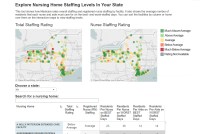Latest KFF Health News Stories
2020 presidential candidate Sen. Amy Klobuchar (D-Minn.) introduces a proposal to address three phases of substance abuse: prevention, treatment and recovery. The bill’s $100 billion cost would come largely from opioid manufacturers, with Klobuchar saying the companies should be held responsible for helping create the country’s opioid crisis. But Klobuchar includes a number of ideas that have previously failed to gain support in Congress, so the outlook for her plan is uncertain.
One in six Americans who get insurance through their jobs say they’ve had to make “difficult sacrifices” to pay for healthcare in the last year, including cutting back on food and taking extra jobs. And it is feeding resentments and deepening inequalities, as healthier and wealthier Americans are able to save for unexpected medical bills while the less fortunate struggle to balance costly care with other necessities.
Today’s early morning highlights from the major news organizations.
Short-Staffed Nursing Homes See Drop In Medicare Ratings
In its latest update to the Nursing Home Compare website, the government gave 1,638 homes its lowest star rating for staffing — one star on its five-star scale. Most were downgraded because payroll records reported no registered-nurse hours at all for at least four days.
For Those With Developmental Disabilities, Dental Needs Are Great, Good Care Elusive
Lack of access means that people with physical and cognitive disabilities have a heavier burden of dental disease.
Look-Up: How Nursing Home Staffing Fluctuates Nationwide
Use this tool to see staffing levels at skilled nursing homes in the U.S.
Podcast: KHN’s ‘What The Health?’ Bye-Bye, ACA, And Hello ‘Medicare-For-All’?
Margot Sanger-Katz of The New York Times, Paige Winfield Cunningham of The Washington Post and Erin Mershon of Stat News join KHN’s Julie Rovner to discuss the latest in news about the Trump administration’s effort to overturn the Affordable Care Act, a historic hearing on “Medicare-for-all” and the Kansas Supreme Court’s ruling that the state constitution protects a woman’s right to abortion. Also, Rovner interviews KHN’s Carmen Heredia Rodriguez about the latest “Bill of the Month” feature.
Con lesiones en las cabezas, ¿los estados finalmente regularán los scooters?
El estudio de los CDC mostró un mayor número de hombres lesionados, pocos accidentes por choques con autos, y casi cero uso del casco de seguridad. Ya se registran muertes.
With Head Injuries Mounting, Will Cities Put Their Feet Down On E-Scooters?
As dockless electric scooters run roughshod through cities nationwide, the Centers for Disease Control and Prevention issues its first assessment on injuries and safety. It studied the injuries linked to riding e-scooters in Austin, Texas, from September through November. More than 200 people were hurt in scooter crashes and mishaps — with nearly half suffering head injuries.
Research Roundup: Drug Safety; Tackle Football; And Breastfeeding
Each week, KHN compiles a selection of recently released health policy studies and briefs.
Opinion writers weigh in on these health topics and others.
Media outlets report on news from Florida, Texas, Oregon, Louisiana, Ohio, Michigan, Minnesota, District of Columbia, California, Massachusetts and New Mexico.
The Washington Post Fact Checker looks at President Donald Trump’s recent claims about his administration’s impact on the opioid epidemic are lacking in nuance. Meanwhile, state attorneys general worry about an updated version of the government’s prescribing guidelines.
The inherent nature of antibiotics — that they need to be used in limited quantities and they cure their patients — is anathema to an industry that prospers on expensive, pricey drugs for chronic diseases. But the need for someone to invest in new antibiotics becomes more dire by the day. In other pharmaceutical news: drug rebates and treatment for Dengue fever.
After several states have passed bills banning abortions once a fetal heartbeat is detected, Alabama’s House passed a bill outlawing abortions unless a woman’s health is at serious risk. In other states, legislation looks at late-term abortions, medical abortions, arming teachers, children’s mental health, sidelining bills and more.
Editorial pages focus on the high cost of health care and ideas to lower them.
In a departure from the norm, the Congressional Budget Office’s report didn’t estimate about how much a switch to “Medicare for All” would actually cost, in part because such a change would so disrupt the country’s economy that it would be impossible to forecast the full impact. The office did, however, lay out potential pitfalls, obstacles, challenges and rewards of moving into a different model, providing talking points to lawmakers on all sides of the issue.
Trump Administration Formally Asks Court To Strike Down Entirety Of The ACA
In its brief to the 5th U.S. Circuit Court of Appeals in New Orleans, the Trump administration abandons an earlier position that some parts of the Affordable Care Act should stand, asking the court to uphold U.S. District Court Judge Reed O’Connor’s ruling last year striking down the entire health law. The appeals court is expected to hear oral arguments in July.
Former Vice President Joe Biden has signaled support for a buy-in option for Medicare, while rival candidate Sen. Bernie Sanders (I-Vt.) backs more sweeping changes to the health system. The divide highlights one of the main rifts between the progressive and moderate wings of the Democratic field. Other 2020 election news looks at mental health care and environmental justice.
Despite Democrats having a stronghold on the New York Legislature, there seems to have been little appetite to take up legislation that would eliminate religious exemptions. As the current measles outbreak continues to spiral out of control, however, some minds are changing. In other news on the measles outbreak: vaccination production, a quarantined cruise ship, movie theater exposure, and more.







